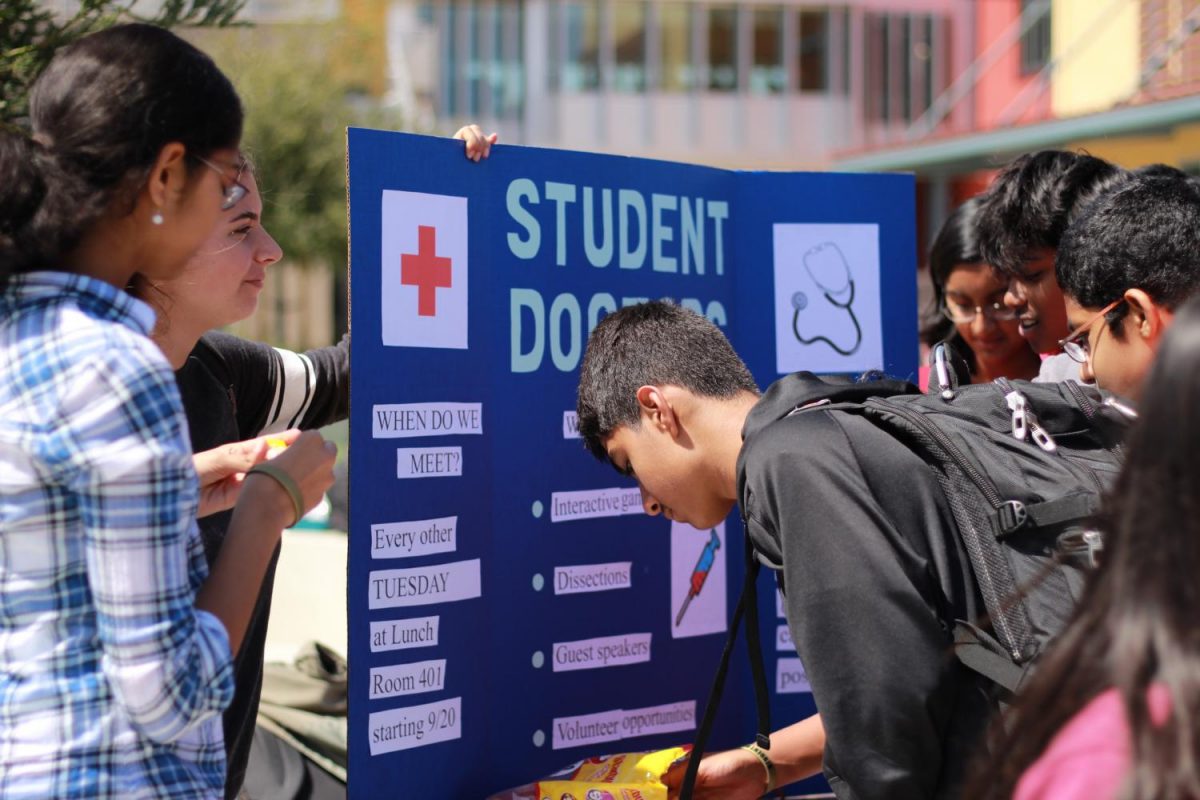Service Clubs Should Let Students Attend their Own Events for Credit
September 30, 2017
Cupertino High School’s service clubs provide students with opportunities to create positive social change through volunteering at local events, charities, and other community organizations. As a general requirement, students must fulfill a certain number of event hours or credits each semester. The officers of the clubs are in largely in charge of community outreach, and sign-ups for upcoming events they find are usually posted online. While this is a simple process for members to follow, it is also the only one that is available; students are not allowed to conduct their own outreach and attend events that are not chosen by the officers themselves.
If proper procedures are established to allow the free selection of volunteering opportunities, interested students will have more flexibility in their schedules and more chances to connect with the community— benefits impacting not only the students themselves, but also the organizations they represent.
The dates and times for club given events are rigid and uncompromisable. When students sign up for an event in advance, they must commit it to their schedule, sometimes months beforehand. Although some clubs let students withdraw from events upon notice, students can be penalized for abandoning their commitment and the club is left without the desired number of volunteers. These long commitments are troublesome especially for upperclassmen with lots of other priorities; records from CHS’s service clubs show that the members who are unable to complete their semester’s required hours increase with grade level. Many students also put off their duties to the last minute, and only realize when it is too late that there are not enough events left for them in the semester to meet their goal.
Therefore, allowing students to attend events convenient for them allows the fitting of deadlines around their schedules, and not the other way around. Although it definitely takes more effort to find a suitable event than to sign up for one, having the option will save a lot of stress for preoccupied students in the long run and ensures that they complete their assigned hours or credits.
Furthermore, not rewarding students credit for personal arrangements refuses them the opportunity of community outreach. This can distance them from connecting with the organizations and people whom they may be interested in serving.
Part of the problem comes from the system where the club handles the crucial communication work; all volunteers have to do is to sign up for and attend the event. Consequently, from a lack of interaction, the average volunteer enters and leaves the events learning close to nothing about its organizers. The other part of the problem is the events themselves— for many club members there are at most one to two events per semester that they are genuinely interested in. Often, students attend events solely to meet the club requirement, lacking the responsibility and dedication necessary for effective service.
These consequences do not concern most members but is detrimental to the organizations and the students who join service clubs in hopes of establishing a deeper relationship with the community. Students who willingly reach out to an organization learn more about its goals and the role it plays in the community, and as a result, are all the more passionate about the events they attend. In finding organizations or events that resonate with them, students also solidify own visions and discover the true spirit of community service all the while rewarding organizations with eager and committed volunteers.
Nonetheless, many clubs are hostile because they suspect students will use the power to cheat the system. Indeed, students can easily use their existing connections to gain “easy” service hours, attending events and working for organizations with which they were already involved beforehand. Having the club set fair limitations and require contact information from the volunteers’ organizations will help remedy such issues without too much additional burden. For example, having the organizer of the event confirm via email with club officers that the volunteer has not been working with them in past ensures that there would be no students with an unfair advantage.
Permitting students to attend service events on their own for club hours or credits gives them better control over their schedules and rewards enthusiasts with an enhanced experience learning about and working for the community. Effective volunteering is the essence of community service; catering to students’ curiosities, interests, and practical needs is the essence of effective volunteering.




